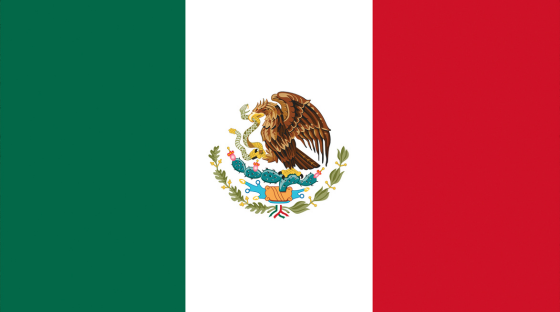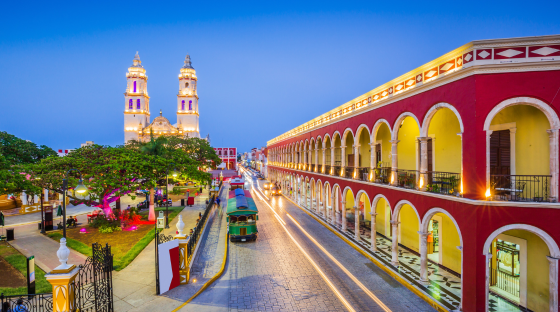-
Services
-
Software Project Delivery
-
Services
-
Solutions
-
Technologies
-
-
Network
-
Discover
-
Regions
-
Industries
-
Must-Read Guide
-
2026 Global Software Outsourcing Rates and Trends GuideDiscover why rates are just one aspect of the Accelerance Global Software Outsourcing Rates & Trends Guide, which offers valuable insights into the software development landscape.
-
-
-
Resources
-
Our Resources
-
Newest White paper
-
Aviation Ecosystem Modernization: A Holistic Approach for Meaningful TransformationModernize aviation by integrating people, processes, technology, and data
-
-
New eBook
-
 The True Cost of Software DevelopmentHidden costs can wreck your budget. Our new eBook breaks down the true cost of outsourcing—get your copy to stay ahead.
The True Cost of Software DevelopmentHidden costs can wreck your budget. Our new eBook breaks down the true cost of outsourcing—get your copy to stay ahead.
-
-
Featured White paper
-
Flow & Process OptimizationIn this white paper, you'll learn to streamline workflows, improve change management, and accelerate results.
-
-
-
About
-
About Accelerance
-
Our History
-
Accelerance: Our HistoryThere's great talent everywhere and great teams everywhere, which is the basis of the Accelerance model.
-
-
Software Without Borders
-
New Episode Every Week!Tune into our podcast Software Without Borders, the essential listen for technology leaders and business owners in the software sector who crave insights from the industry’s top minds.
-
-
Andy's Book
-
Synergea: A Blueprint for Building Effective, Globally Distributed Teams in the New Era of Software DevelopmentPeople are first and locations are secondary when it comes to software development success.
-
-
- Client Reviews
Mexico

Overview
The world’s third-largest technology services exporter is on a roll. Mexico has surged past Canada and China to become the United States’ top trading partner, according to recent figures from the US Census. A boom in nearshoring helped drive the value of Mexico’s exports across the border to $475 billion in 2023. And while a report by the Inter-American Development Bank suggests all of Latin America and the Caribbean are poised to reap the benefits from increased nearshoring demand, Mexico is forecast to account for nearly half of the total growth.
Commentators expect a solid performance in 2024 from Mexico, which is the second-largest economy in Latin America. With business and consumer confidence improving, sectors such as tourism, manufacturing, and services are likely to contribute significantly to the country’s economic recovery.
Striking a balance between controlling inflation and supporting economic growth will be essential, according to a special report by The Business Year. After facing a rollercoaster of economic shifts in recent years, Mexico is positioned for a period of crucial recovery and growth. In what is set to be a pivotal year with significant milestones, events will crescendo in summer elections set for June 2024 that could produce a significant shift in the country’s trajectory.
The Accelerance Global Network is the most curated list of high-quality global teams ever assembled.
350
Developers
Total number of developers in our certified partner network by country
2
Certified Partners
Total number of certified partners in our global network by country.
5hrs
Time Travel (From NY)
Average flight time from NY to the major cities in the country.
50
Partner Innovation capability
The score reflects investment in STEM progrms and IT funding by country.
92
Partner Skill Level
Level of workforce skills and quality of education, including factors such as digital literacy, interpersonal skills, etc.
46
Partner Global Competitiveness
National productivity based on 12 core pillars, including government policy, infrastructure, economic stability, etc.
High
Software Outsourcing Readiness
Overall rating, based on the maturity of the tech sector, socio-political conditions, and on-the-ground research by Accelerance.

Talent Pool & Education
Mexico is the third-largest IT exporter in the world. More than 130,000 engineers graduate from the country’s tertiary institutions each year, outstripping the US. The depth of resources has attracted investment from major tech corporations and led to the city of Guadalajara being dubbed the Silicon Valley of Latin America. Proximity to the United States, low cost of labor, and growing pool of highly skilled engineers make it a prime location for outsourcing, with a growing emphasis on digitalization and innovation in AI, robotics, cybersecurity, HealthTech, and blockchain.
The Global Startup Ecosystem Index ranks Mexico as one of the prime locations in Central America, with some 440 startups in 2023 across IT hubs in Mexico City, Monterrey, Guadalajara, and Mérida. Commentators believe embracing digital transformation by integrating technology into sectors such as finance, healthcare, and education to enhance efficiency and productivity will be pivotal for Mexico’s economic evolution in 2024. The government also has plans to boost e-government services to reduce bureaucracy, including making birth certificates accessible online and a large free WiFi initiative.
Language

Economic Outlook
Mexico performed better than most other major Latin American economies in 2023, largely owing to strong nearshoring demand and rapid growth in the US. After a slow recovery from the pandemic, the country has navigated well the global environment of tightening financial conditions and heightened uncertainty, reports the OECD. Fiscal policy has a robust track record in meeting targets and keeping public debt low, while higher tax revenues would help to address important spending needs in productivity-enhancing areas, such as education, infrastructure, digital and green transitions, and the fight against corruption and crime.
Mexico has considerable potential to attract investment from companies looking to relocate their operations to North America. This is also a significant opportunity to spread the benefits of trade throughout the country and to create more and better value chain linkages. A draft budget from the country’s finance ministry in late March 2024 forecasts growth of 2-5% to 3.5%, followed by a further expansion of up to 3% in 2025. Inflation is expected to tick downwards, despite a slight weakening of the Mexican peso against the US dollar, alongside a small rise in crude oil production to 1.86 million barrels in 2025.
Political Conditions
After a violent lead-up to the June 2024 elections, Mexico elected Claudia Sheinbaum of the Morena party as the country’s first female president. A climate scientist and former mayor of the capital, Sheinbaum is also Mexico's first Jewish leader, although she has governed as a secular leftist, supported by her longtime political ally, outgoing president Andrés Manuel López Obrador.
With more than 98 million registered voters, the elections were the largest in Mexico’s history, not only to elect a new president but all members of the Chamber of Deputies and the Senate of the Republic, eight governors, Mexico City’s Head of Government, 31 local congresses and other representatives around the country.
The Wilson Center, a US-based think tank, has highlighted six priority areas that need to be addressed by the new government: energy, migration, nearshoring, security, the United States-Mexico-Canada Agreement (USMCA) and water. “Each of these issues is relevant in Mexico, to the Mexico-US bilateral relationship, and to citizens on both sides of the border,” it reported.
López Obrador, or Amlo as he is commonly known, had maintained an approval rating of at least 60% throughout his presidency, making him one of the most popular leaders in the world. Reforms that won public support included raising the minimum wage, slashing government salaries and introducing a pensions program. However, critics point to his failure to tackle violence, his efforts to undermine democratic norms, a fixation on fossil fuels and his increasing dependence on the powerful military.
Learn more about our customer stories.
Looking for a customer story in a specific technology or industry? Discover compelling customer narratives within a specific technology or industry that resonate with your unique software development needs.
